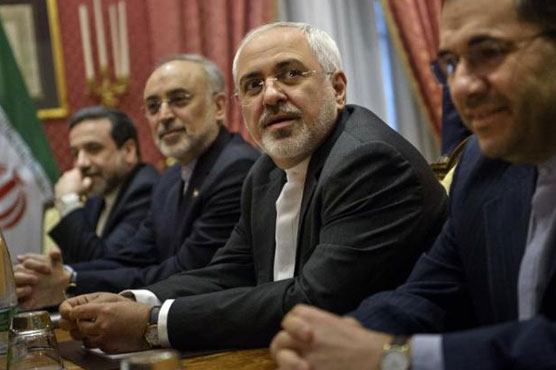Iran 'optimistic' amid final countdown for nuclear deal

6 world powers negotiating with Iran want Iran to disable parts of its nuclear infrastructure
LAUSANNE (AFP) - Iran s nuclear chief said Thursday he was "optimistic" about reaching a ground-breaking nuclear deal, as US and Iranian diplomats launched down-to-the-wire talks chasing a March 31 deadline.
"On the whole I am optimistic," Ali Akbar Salehi, head of the Atomic Energy Organisation of Iran, said in an exclusive interview with AFP on the sidelines of the crunch talks which resumed in the Swiss town of Lausanne.
But he warned "there are those who have an interest in more troubles and not dealing with this question have not been inactive. They are trying to make sure there is no deal."
After 18 months of intense negotiations around the globe, US Secretary of State John Kerry launched a final round of talks with his Iranian counterpart Mohammad Javad Zarif before Tuesday s deadline with American officials also saying a deal was in sight.
"We very much believe that we can get this done by (March) 31," a senior State Department official said.
"We can see a path forward here to get to an agreement, we can see what that path might look like," the official told reporters, cautioning however that this "doesn t mean we ll get there".
Six world powers negotiating with Iran since late 2013 want Iran to disable parts of its nuclear infrastructure to put an atomic bomb out of reach and end a 12-year standoff.
After missing two deadlines in 2014 to turn a interim November 2013 accord into a lasting deal, the parties set March 31 for a "framework" agreement with a full pact setting out all the technical details to be agreed by June 30.
There were concerns that a crisis in Yemen, where Saudi Arabia Wednesday launched air strikes against Shiite rebels who have seized control of the capital, could sour the atmosphere for the talks.
US President Barack Obama has authorised the "provision of logistical and intelligence support" for the campaign.
But Zarif slammed the air strikes saying they would lead only to greater loss of life.
"Military action from outside of Yemen against its territorial integrity and its people will have no other result than more bloodshed and more deaths," he told the Iranian-owned Al-Alam television channel.
Kerry and Zarif both refused to answer questions about Yemen at the start of their talks in a luxury Lausanne hotel, but the American diplomat convened a conference call with Gulf ministers to discuss the crisis.
After two hours, Kerry and Zarif dismissed their teams to meet one-to-one.
- Up to the other side -
==========================
Amid a slew of Middle East upheavals, the mooted nuclear deal could boost relations between Iran and the West after decades of acrimony, potentially including more cooperation fighting Islamic State militants in Syria and Iraq.
But Iran, which denies wanting the bomb, is loath to dismantle any of its nuclear facilities unless in return the powers dismantle painful UN, US and EU sanctions that have choked its economy.
The six powers counter that they can only be suspended -- not terminated -- over a long period, allowing them to be "snapped back" if Iran violates the deal.
"The Islamic Republic of Iran has demonstrated its political will and it is up to the other side to take a step forward and show that it has the political will to allow a resolution of the problem," Salehi told AFP.
Ahead of discussions with US Energy Secretary Ernest Moniz, Salehi said a range of technical, legal and political aspects needed to somehow fit together in what would be a highly complex agreement.
"Everything is linked. On the technical questions we have come closer together towards a common understanding," he said. "But there remains a lot of work to do."
It also remains unclear how detailed any framework deal between Iran and the six powers will be. A senior European official said it may only be an internal document, a fact sheet -- or not a text at all.
The State Department official said the format was still under discussion, but it "needs to address in some way all of the major elements of a final agreement" agreeing "it needs to have specifics."
Obama s administration is under severe pressure from a hostile Congress hammer out something concrete.
And Britain s Philip Hammond, who like other foreign ministers is on stand-by to come to Lausanne at the weekend, also warned of the consequences of failure.
"No deal means no restrictions on (Iran s nuclear programme) ... It means a fundamentally more unstable Middle East, with the prospect of a nuclear arms race in the region," Hammond said.

